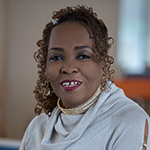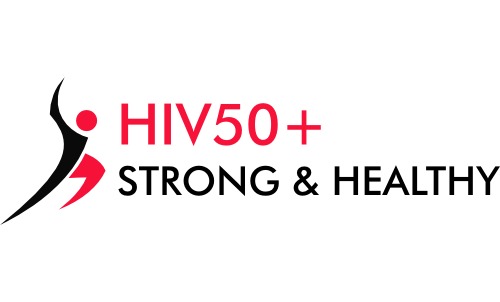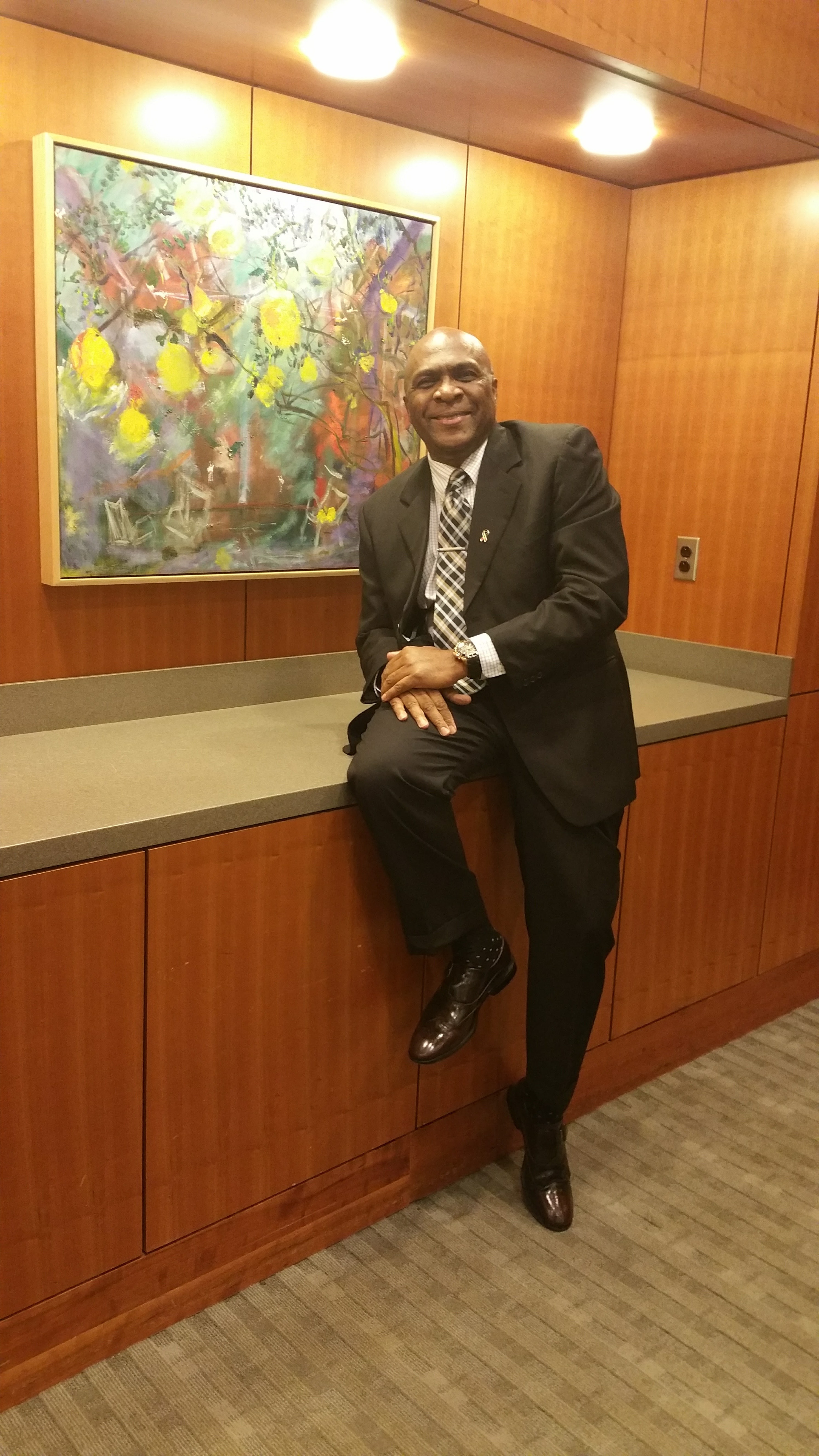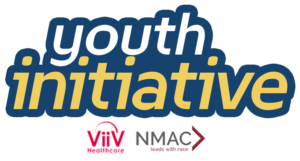 On behalf of NMAC and our funders – ViiV Healthcare, and collaborative partner Advocates for Youth, we are pleased to announce the 2019 Youth Initiative Scholars! This program empowers young leaders in the HIV community with leadership skills, as well as improves HIV and public health literacy to bring back and apply within their communities and organizations.
On behalf of NMAC and our funders – ViiV Healthcare, and collaborative partner Advocates for Youth, we are pleased to announce the 2019 Youth Initiative Scholars! This program empowers young leaders in the HIV community with leadership skills, as well as improves HIV and public health literacy to bring back and apply within their communities and organizations.
The Youth Initiative, now in its eighth year, brings together the next generation of leaders ages 18–25 (known as Youth Scholars) to participate in a seven-month, comprehensive program to help end the HIV epidemic in the U.S. As part of this program, Youth Scholars will gain opportunities to develop leadership, increase their knowledge, and build confidence while integrating key youth-specific messaging in local, state and national HIV/AIDS programs and advocacy agendas.
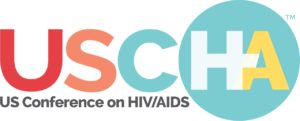 The Youth Scholars will also attend the U.S. Conference on HIV/AIDS (USCHA), held online Oct. 19-21, 2020. During the conference, Youth Scholars will participate in sessions meant to advance their leadership skills, build confidence, and learn new ways to prioritize youth within HIV/AIDS programs and policies in their communities.
The Youth Scholars will also attend the U.S. Conference on HIV/AIDS (USCHA), held online Oct. 19-21, 2020. During the conference, Youth Scholars will participate in sessions meant to advance their leadership skills, build confidence, and learn new ways to prioritize youth within HIV/AIDS programs and policies in their communities.
Congratulations to the following Scholars and Mentors for their acceptance into the 2019 Youth Initiative Program!
Meet the Youth Initiative Scholars
 Mario Campos is a 25-year-old, Salvadoran with a bachelor’s degree in International Relationships and recently graduated from his second degree in International Business from Broward College – Florida.
Mario Campos is a 25-year-old, Salvadoran with a bachelor’s degree in International Relationships and recently graduated from his second degree in International Business from Broward College – Florida.
From a young age, Mario has participated in public speaking and poetry events, and has won two public speaking competitions when representing his country. His excellent academic record helped him to obtain multiple scholarships for different international exchange programs including programs in Costa Rica, Panama, and the United States, where he completed a course in Harvard University in 2015. Also, he is actively engaged in activities from his church and community organizations such as the AFROOS Organization (Salvadoran Youth Organization for the Afro-descendant and LGBTQIA community) and he knows sign language.
In 2017, he was crowned as Miss Gay El Salvador and he developed different projects to empower the Salvadorian LGBTQIA community, raising a voice for this traditionally marginalized and excluded community. Also, he led a legislative initiative demanding fair treatment and equal employment opportunity for the LGBTQIA community in El Salvador. In 2019, he was selected by the US Department of Health to become a youth fellow at the national convention for HIV, and in 2020, the President of El Salvador awarded him the recognition of “Young Influencer El Salvador 2020”
Currently, he is an UN volunteer and one of the 10 young spokespersons for the “Ideas that Work” program promoted by the Senate of Argentina and the United Nations. Also, he delivers talks on youth empowerment and immigrant children, and he is writing a book on personal growth. He supports Florida Department of Health as a coordinator for HIV prevention and leadership groups and works as a counselor in the Clear and Life Coaching program focused in providing support to undocumented individuals newly diagnosed with HIV.
 Jenadra Harvey hails from the state of Connecticut. While there, she obtained a Bachelor of Arts degree in Individualized: Urban Youth Development and Health (Minors in Psychology & Human Development + Family Studies) from the University of Connecticut. Her experiences at UCONN led her to attend Howard University and obtain a Master of Education in School Psychology and Counseling Services. Jenadra Harvey currently works as a School Psychologist in Maryland. In her practice, she hopes to create spaces to serve marginalized populations in inner cities by encouraging conversations around education and (physical, sexual, and mental) health. This field and the public service work that she engages in will permit Jenadra to bring about the assistance and change that is needed in inner cities across the nation.
Jenadra Harvey hails from the state of Connecticut. While there, she obtained a Bachelor of Arts degree in Individualized: Urban Youth Development and Health (Minors in Psychology & Human Development + Family Studies) from the University of Connecticut. Her experiences at UCONN led her to attend Howard University and obtain a Master of Education in School Psychology and Counseling Services. Jenadra Harvey currently works as a School Psychologist in Maryland. In her practice, she hopes to create spaces to serve marginalized populations in inner cities by encouraging conversations around education and (physical, sexual, and mental) health. This field and the public service work that she engages in will permit Jenadra to bring about the assistance and change that is needed in inner cities across the nation.
JyLan Jones (no bio)
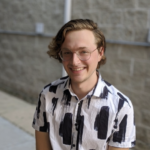 Kody Keckler (he/they) is a Research Associate at the Ruth M. Rothstein CORE Center. They started their career in HIV prevention research, spending the last three years implementing interventions to help young people access and adhere to PrEP. As of April, though, Kody has transitioned to COVID-19 projects to meet the need of the moment. Prior to their research work, Kody worked with the sexual assault services at Northwestern University, helping design information campaigns and compiling resources for an intake handbook. Kody graduated from Northwestern University in 2017 studying Communication and Gender & Sexuality Studies. Their professional interests include addressing health disparities among queer and trans youth and using queer theory as a lens to deconstruct systems of oppression.
Kody Keckler (he/they) is a Research Associate at the Ruth M. Rothstein CORE Center. They started their career in HIV prevention research, spending the last three years implementing interventions to help young people access and adhere to PrEP. As of April, though, Kody has transitioned to COVID-19 projects to meet the need of the moment. Prior to their research work, Kody worked with the sexual assault services at Northwestern University, helping design information campaigns and compiling resources for an intake handbook. Kody graduated from Northwestern University in 2017 studying Communication and Gender & Sexuality Studies. Their professional interests include addressing health disparities among queer and trans youth and using queer theory as a lens to deconstruct systems of oppression.
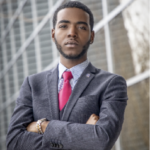 Timmy R. Kimber is a 24-year-old native of Belzoni, MS and 2014 honors graduate of Humphreys County High School. He studied Communication and Theatre at Jackson State University. Timmy is a philanthropist and the CLEAR Coordinator for Us Helping Us, People Into Living, Inc. In his current role, he serves people living with HIV/AIDS and those that are at risk. Timmy has served on several state and national advisory boards including Mississippi Center for Justice. Whether he is serving on an advisory board or simply encouraging others with conversations that move them forward, Timmy is always seeking innovative and unconventional ways to advance the causes and missions of organizations committed to public health. He is a member of MADRAMA Performance Troupe at Jackson State University. But every super-hero has downtime, and when he’s not fighting the cause for others and himself, he’s reading, doing research, learning the ins and outs of politics, or his absolute favorite hobby, residential and commercial interior design. Timmy hails from a small town in the Mississippi Delta, yet wise. Whether it’s public health or interior design, Timmy’s passion is creating a space for people to live, laugh, and love. He is a member of Wasp Lake Missionary Baptist Church where Lisa R. Day serves as the pastor. His motto in life comes from Proverbs 18:16 which says, “A man’s gift makes room for him and brings him before great men!”
Timmy R. Kimber is a 24-year-old native of Belzoni, MS and 2014 honors graduate of Humphreys County High School. He studied Communication and Theatre at Jackson State University. Timmy is a philanthropist and the CLEAR Coordinator for Us Helping Us, People Into Living, Inc. In his current role, he serves people living with HIV/AIDS and those that are at risk. Timmy has served on several state and national advisory boards including Mississippi Center for Justice. Whether he is serving on an advisory board or simply encouraging others with conversations that move them forward, Timmy is always seeking innovative and unconventional ways to advance the causes and missions of organizations committed to public health. He is a member of MADRAMA Performance Troupe at Jackson State University. But every super-hero has downtime, and when he’s not fighting the cause for others and himself, he’s reading, doing research, learning the ins and outs of politics, or his absolute favorite hobby, residential and commercial interior design. Timmy hails from a small town in the Mississippi Delta, yet wise. Whether it’s public health or interior design, Timmy’s passion is creating a space for people to live, laugh, and love. He is a member of Wasp Lake Missionary Baptist Church where Lisa R. Day serves as the pastor. His motto in life comes from Proverbs 18:16 which says, “A man’s gift makes room for him and brings him before great men!”
Rocky Kingsley (no bio)
 Jordan McKinnon joins us as a program Scholar. Jordan recently graduated from DePauw University in Greencastle, Indiana. While at DePauw he majored in Neuropsychology with a minor in East Asian Religious Studies. He also was a member of Sigma Nu fraternity and a co-founder Queer People of Color (QPOC), an organization that gave queer students of color the space and opportunity to be heard in an otherwise cis-heteronormative world. Currently, Jordan volunteers at the Damien Center and is an Advocate for Planned Parenthood. And as a Scholar he looks forward to learning and engaging in constructive change with NMAC to better help his community.
Jordan McKinnon joins us as a program Scholar. Jordan recently graduated from DePauw University in Greencastle, Indiana. While at DePauw he majored in Neuropsychology with a minor in East Asian Religious Studies. He also was a member of Sigma Nu fraternity and a co-founder Queer People of Color (QPOC), an organization that gave queer students of color the space and opportunity to be heard in an otherwise cis-heteronormative world. Currently, Jordan volunteers at the Damien Center and is an Advocate for Planned Parenthood. And as a Scholar he looks forward to learning and engaging in constructive change with NMAC to better help his community.
 Nwizu Ujuonu (no bi0)
Nwizu Ujuonu (no bi0)
Tyvion Roberts (no bi0)
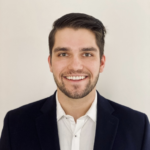 Aron Thiim (he/him/his/él) is a social justice advocate and public health professional dedicated to improving health and fighting stigma. While completing his B.S. in Public & Community Health, he worked at a syringe exchange in Upstate NY providing syringe access and risk reduction services to people who use substances and led community education seminars about HIV/HCV and opioid overdose prevention. After graduation, he worked in Boston at Fenway Health coordinating behavioral science research studies among sexual and gender minority people living with HIV and substance use disorders. He is currently a Program Manager of HIV/STIs and Prevention at The Justice Resource Institute (JRI), where he oversees a clinical team in MetroWest Boston offering HIV/STI/HCV counseling, testing and treatment, PrEP and PEP. His outreach and volunteer experiences include working with individuals experiencing homelessness, people who are incarcerated, people at risk or living with HIV, and people who use substances. Aron plans to pursue a future clinical career in community-oriented primary care.
Aron Thiim (he/him/his/él) is a social justice advocate and public health professional dedicated to improving health and fighting stigma. While completing his B.S. in Public & Community Health, he worked at a syringe exchange in Upstate NY providing syringe access and risk reduction services to people who use substances and led community education seminars about HIV/HCV and opioid overdose prevention. After graduation, he worked in Boston at Fenway Health coordinating behavioral science research studies among sexual and gender minority people living with HIV and substance use disorders. He is currently a Program Manager of HIV/STIs and Prevention at The Justice Resource Institute (JRI), where he oversees a clinical team in MetroWest Boston offering HIV/STI/HCV counseling, testing and treatment, PrEP and PEP. His outreach and volunteer experiences include working with individuals experiencing homelessness, people who are incarcerated, people at risk or living with HIV, and people who use substances. Aron plans to pursue a future clinical career in community-oriented primary care.
 Lisa Watkins is a dedicated and active HIV/AIDS advocate and activist who currently resides in Memphis, TN. She lives for helping and guiding others to the best of her ability and she also stands to end stigma and improve prevention and awareness for multiple causes. She serves as a member of many Community Advisory Boards and acts as a spearhead member of The Paige (Project of Advancement In Gay’s Efforts) HIV/AIDS Decriminalization sector as well as other organizations highlighting issues related to you such as HIV, suicide, reproductive health and justice and LGBTQ+ health and rights. In the future, she plans to become a counselor for youth and young adults newly diagnosed with HIV. As a self-identified, positive black woman, Watkins dedicates her time and patience to working toward ending the epidemic and raising awareness for all as well as being one of the voices needed to lead and guide youth to be heard and seen while creating space for transitional leadership.
Lisa Watkins is a dedicated and active HIV/AIDS advocate and activist who currently resides in Memphis, TN. She lives for helping and guiding others to the best of her ability and she also stands to end stigma and improve prevention and awareness for multiple causes. She serves as a member of many Community Advisory Boards and acts as a spearhead member of The Paige (Project of Advancement In Gay’s Efforts) HIV/AIDS Decriminalization sector as well as other organizations highlighting issues related to you such as HIV, suicide, reproductive health and justice and LGBTQ+ health and rights. In the future, she plans to become a counselor for youth and young adults newly diagnosed with HIV. As a self-identified, positive black woman, Watkins dedicates her time and patience to working toward ending the epidemic and raising awareness for all as well as being one of the voices needed to lead and guide youth to be heard and seen while creating space for transitional leadership.
Meet the Youth Initiative Mentors
 Farah Jeune is a multimedia Artist from Boston. She uses her creativity to help her peers, elders and ancestors feel empowered, represented and loved in colorful 2D mediums. As an art activist, she creates artwork to bring awareness to taboo issues impacting communities of color such as HIV and mental health. Ms. Jeune also is the creator, host and producer of a monthly television variety show entitled ‘ºFarenheight TV’ which celebrates people’s greatness through interviews, LIVE performances and more. Learn more by visiting www.FarenheightTV.com
Farah Jeune is a multimedia Artist from Boston. She uses her creativity to help her peers, elders and ancestors feel empowered, represented and loved in colorful 2D mediums. As an art activist, she creates artwork to bring awareness to taboo issues impacting communities of color such as HIV and mental health. Ms. Jeune also is the creator, host and producer of a monthly television variety show entitled ‘ºFarenheight TV’ which celebrates people’s greatness through interviews, LIVE performances and more. Learn more by visiting www.FarenheightTV.com
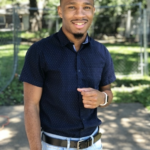 Darriyhan Edmond is a young leader and person living with HIV since the age of 18. He is currently the founder and executive director of Project RED Paint, which is located in Atlanta, GA and serves as an organization providing support, empowerment, and encourage to enhance the lives of people of color living with HIV. Since his diagnosis Darriyhan has dedicated himself to the work and community. He is truly committed to the fight and hopes to see this epidemic end within his time.
Darriyhan Edmond is a young leader and person living with HIV since the age of 18. He is currently the founder and executive director of Project RED Paint, which is located in Atlanta, GA and serves as an organization providing support, empowerment, and encourage to enhance the lives of people of color living with HIV. Since his diagnosis Darriyhan has dedicated himself to the work and community. He is truly committed to the fight and hopes to see this epidemic end within his time.
Darriyhan has volunteered and worked with many organizations within the work. He has served as a youth mentor for youth within the Youth Initiative and recently worked with THRIVE SS of Atlanta as Linkage to Care Coordinator. After much time working he began his own organization to save more lives and became incorporated in 2018.
 Marnina Miller is a Human Rights Activist. Her expertise revolves around HIV advocacy, queer community engagement, language justice, and body positivity. She fell in love with activism after joining Positive Organizing Project a movement that trains people living with HIV on how to become effective HIV activist. This out and proud, Black Queer young woman facilitates trainings on anti-stigmatizing language, effective leadership, sex positivity, and community organizing. At Positive Women’s Network-USA(PWN-USA) she currently serves on the Board of Directors. She is also a graduate of the PWN-USA’s Public Policy Fellowship. Marnina is a youth ambassador for Youth Across Borders where she spends time at Montañade Luz which is an orphanage for children living with HIV in Honduras. She is also the co-chair for the Texans Living with HIV Network, and a recipient of the Violet Award; which recognizes LGBTQ advocates in Houston. At NMAC she is the graduate of the Inaugural Building Young Leaders of Color (BYLOC) leadership training and a youth council facilitator for the Youth Initiative Program. Marnina is also a feature writer for the international online publication Life and Love with HIV where she is dismantling the stigma of women; developing, maintaining, and pursuing a healthy sex life one blog post at a time Marnina has been a board member of The Mahogany Project Inc. since 2020 where she is also a cohost of the In Living Colors Podcast.
Marnina Miller is a Human Rights Activist. Her expertise revolves around HIV advocacy, queer community engagement, language justice, and body positivity. She fell in love with activism after joining Positive Organizing Project a movement that trains people living with HIV on how to become effective HIV activist. This out and proud, Black Queer young woman facilitates trainings on anti-stigmatizing language, effective leadership, sex positivity, and community organizing. At Positive Women’s Network-USA(PWN-USA) she currently serves on the Board of Directors. She is also a graduate of the PWN-USA’s Public Policy Fellowship. Marnina is a youth ambassador for Youth Across Borders where she spends time at Montañade Luz which is an orphanage for children living with HIV in Honduras. She is also the co-chair for the Texans Living with HIV Network, and a recipient of the Violet Award; which recognizes LGBTQ advocates in Houston. At NMAC she is the graduate of the Inaugural Building Young Leaders of Color (BYLOC) leadership training and a youth council facilitator for the Youth Initiative Program. Marnina is also a feature writer for the international online publication Life and Love with HIV where she is dismantling the stigma of women; developing, maintaining, and pursuing a healthy sex life one blog post at a time Marnina has been a board member of The Mahogany Project Inc. since 2020 where she is also a cohost of the In Living Colors Podcast.
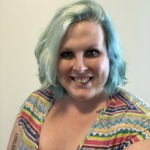 Dannielle Blakely is a 26 year old transgender woman living with HIV. She was diagnosed with HIV in 2017. Since her diagnosis, she has become an advocate for those living with HIV in the Topeka, Kansas area. Dannielle hopes to return to school to finish her Bachelor of Nursing and continue her education in order to become a Nurse Practitioner, specializing in Infectious Disease, specifically in HIV. She enjoys painting, video games, and playing with her dog in her free time.
Dannielle Blakely is a 26 year old transgender woman living with HIV. She was diagnosed with HIV in 2017. Since her diagnosis, she has become an advocate for those living with HIV in the Topeka, Kansas area. Dannielle hopes to return to school to finish her Bachelor of Nursing and continue her education in order to become a Nurse Practitioner, specializing in Infectious Disease, specifically in HIV. She enjoys painting, video games, and playing with her dog in her free time.
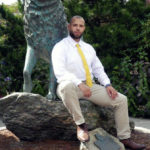 Kyle Rodriguez (He/Him) is an international HIV advocate and an Hermano (brother) of La Unidad Latina, Lambda Upsilon Lambda, Fraternity Incorporated. He currently attends the University of Connecticut pursuing his Bachelor of Science in Allied Health Sciences with a Concentration in Public Health and Health Promotion and is anticipated to graduate in May 2021. Kyle is extraordinarily involved on campus, serving as a Residential Assistant (RA), Vice President of the Intercultural Greek Council, and the Chief of Staff to the Chapter President of his fraternity.
Kyle Rodriguez (He/Him) is an international HIV advocate and an Hermano (brother) of La Unidad Latina, Lambda Upsilon Lambda, Fraternity Incorporated. He currently attends the University of Connecticut pursuing his Bachelor of Science in Allied Health Sciences with a Concentration in Public Health and Health Promotion and is anticipated to graduate in May 2021. Kyle is extraordinarily involved on campus, serving as a Residential Assistant (RA), Vice President of the Intercultural Greek Council, and the Chief of Staff to the Chapter President of his fraternity.
Kyle brings a wealth of knowledge working in the HIV prevention field on local, national, and international levels all before the age of 25. Locally, Kyle worked at A Place to Nourish your Health (APNH), serving the Greater New Haven community through HIV community outreach and intentional program planning. He also served as the youngest member of Connecticut’s Getting to Zero Commission where he gave evidence-based advice to end the HIV epidemic in Connecticut. He has helped strengthen healthcare delivery systems in rural Honduras and also volunteered at a Honduran HIV orphanage. Kyle is a proud alum of NMAC’s Youth Initiative Program and BYLOC Program and has been involved with NMAC since 2017.
 Tapakorn (TA-puh-kawn) (they/them) is a non-binary, 1st-generation Thai-American currently residing in Los Angeles, CA. They currently work as an organizational consultant with CHE (Center for Health Empowerment) with a focus on client navigation. Computer science and all things tech became their passion growing up, along with what they studied in school and moved to San Francisco to do, but something was off. The hugely disproportionate divide between wealth and poverty in SF caused them to seek volunteer opportunities at local nonprofits until they started to fall in love with their weekend gig being an HIV Test Counselor at clubs more than, let’s say their “day job”. Eventually, noticing how disgruntled Tapakorn was from their career, Asian Pacific Islander Wellness Center (now known as San Francisco Community Health Center) offered them a position to start their PrEP program.
Tapakorn (TA-puh-kawn) (they/them) is a non-binary, 1st-generation Thai-American currently residing in Los Angeles, CA. They currently work as an organizational consultant with CHE (Center for Health Empowerment) with a focus on client navigation. Computer science and all things tech became their passion growing up, along with what they studied in school and moved to San Francisco to do, but something was off. The hugely disproportionate divide between wealth and poverty in SF caused them to seek volunteer opportunities at local nonprofits until they started to fall in love with their weekend gig being an HIV Test Counselor at clubs more than, let’s say their “day job”. Eventually, noticing how disgruntled Tapakorn was from their career, Asian Pacific Islander Wellness Center (now known as San Francisco Community Health Center) offered them a position to start their PrEP program.
From there, Tapakorn has gone on to work at a few HIV-focused nonprofits specializing in client navigation, HIV Prevention, and program implementation, using their previous tech knowledge to modernize, optimize, and synergize today’s medical systems. During this time inside, you can find them cooking far too much food, playing video games for a renewed sense of adventure, and dying their hair whatever color happen to be on sale that month.

